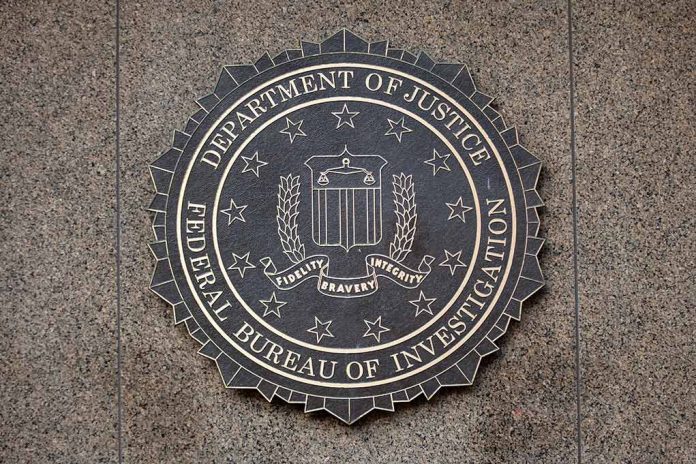
Trump’s administration reshuffles FBI leadership, raising concerns about political interference and potential retaliation against career civil servants.
Key Takeaways
- Several top FBI executives face pressure to resign, retire, or risk demotion under the Trump administration.
- The affected officials include about half a dozen “executive assistant directors” overseeing critical investigations.
- These changes are part of a larger trend of dismissals and forced resignations across federal agencies during Trump’s presidency.
- The move has been described as “hugely disruptive” and has caused significant anger among FBI staff.
- Concerns are rising about potential political interference and retaliatory actions against individuals challenging Trump’s conduct.
FBI Leadership Shake-up
The Trump administration has initiated a significant restructuring of the FBI’s top leadership, affecting several high-ranking officials. Executive assistant directors, who oversee critical areas such as criminal, national security, and cyber investigations, have been told to resign, retire, or face demotion. These career civil servants, who cannot be fired without cause, are now caught in a political crossfire that threatens to disrupt the agency’s operations.
The move has sent shockwaves through the FBI, with one current official describing it as “hugely disruptive.” The affected employees, who are not considered political figures, are reportedly angry about the sudden changes. This restructuring comes in the wake of former FBI Director Christopher Wray’s resignation at the end of the Biden administration, adding another layer of uncertainty to the agency’s future.
Several top FBI executives promoted by Christopher Wray were told today to retire or resign, or they would he demoted or reassigned if they don't leave. This includes about a half dozen "executive assistant directors," who are some of the bureaus top managers.
They are career… pic.twitter.com/nGkBGCtlFv
— Patriot Lady (@angelwoman501) January 31, 2025
Broader Pattern of Dismissals
The FBI shake-up is not an isolated incident but part of a larger pattern of personnel changes across federal agencies during the Trump presidency. In recent months, Trump has fired 18 inspectors general, including those from key departments such as State, Defense, Labor, and Health and Human Services. These dismissals have raised questions about the administration’s motives and its respect for the independence of oversight bodies.
Trump’s justification for these firings has been met with skepticism, particularly given the timing and the individuals targeted. The dismissal of career attorneys at the Justice Department involved in prosecuting Trump has further fueled concerns about potential retribution against those who have challenged his conduct.
Future of the FBI
As the dust settles on these personnel changes, questions loom about the future direction of the FBI. Trump has nominated Kash Patel to lead the agency, a move that has sparked debate about the potential politicization of law enforcement. During his Senate confirmation hearing, Patel stated that the FBI would not engage in retributive actions if he were confirmed, but skepticism remains given the recent history of dismissals and restructuring.
The impact of these changes on the FBI’s ability to carry out its mission effectively remains to be seen. Critics argue that the reshuffling could lead to a loss of institutional knowledge and expertise, potentially hampering ongoing investigations and national security efforts. Supporters of the administration, however, may view these changes as necessary to align the agency with the President’s law enforcement priorities.
Sources:
Several top FBI officials are told to resign or face demotion as Trump continues federal purge



